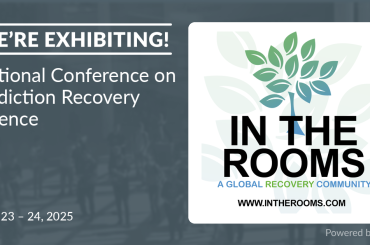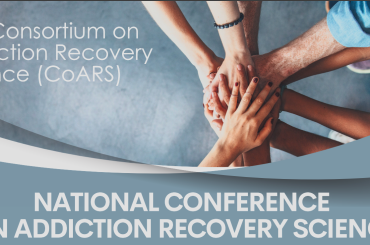When I first got sober from alcohol, after drinking heavily for four years straight, I had no idea what my recovery would look like.
The life-threatening withdrawals I experienced were unexpected. It was scary and embarrassing to realize I was in that deep. There was a horrible clawing feeling in my stomach accompanied by extreme fatigue for two and a half weeks while I detoxed.
After getting through all of that, I felt so optimistic about my second chance at life! However, it soon dawned on me that staying sober was going to be harder than I thought. Nevertheless, the struggle was worth it. I am over two years sober now, and in my experience, sobriety gets easier after the first year.
Cravings
Having cravings to drink only two short months after life-threatening withdrawals seemed crazy to me, but they were strong.
Cravings came to me like the voice of a con man trying to convince me to buy a car with a million dangerous recalls on it. Despite my resistance, the con man’s voice would harass me, sometimes commanding me to drink over 100 times in an evening. I got through an entire year of intense cravings by constantly reminding myself of the following:
- The cravings are temporary.
- Getting through the cravings and returning to normal is worth the struggle.
- My body, my rules. Alcohol will not control me.
- I am stronger than the cravings.
- I refuse to hit rock bottom ever again.
Another thing that helped me get through that first year was staying busy with hobbies, work, and house chores.
When I hit my first-year sober anniversary, the cravings magically went away, just like that! Something about that milestone solidified it in my head, that I am doing this for real.
The voice of the con man died because I stayed strong and refused to give it what it needed to survive. Sober life is so much easier and so much more enjoyable now that the cravings are gone.
Coping Mechanisms
Many people use alcohol as a stress management tool. This is a highly flawed coping mechanism that often stems from poor parenting and learned behavior.
As a kid, I saw my parents drink and use drugs of all kinds as an attempt to take the edge off everyday challenges. In fact, most adults I knew either drank or did drugs daily.
In my teen years, I looked around at my options and chose weed to manage anxiety, since it was the safest choice. However, when I moved back to my home state, I had to give up smoking since it is illegal in Texas. That is when I decided that I needed a new coping mechanism for daily stress, so I chose alcohol.
Alcohol provided the illusion of relieving my stress, but it ended up causing more problems than it was worth in the long run.
When I quit drinking, I had to learn healthy coping mechanisms for the first time in my entire adult life! There was a bit of a learning curve on my first sober year.
Getting back into old hobbies and finding new interests took some time, experimentation, and investment. My favorite healthy stress coping mechanisms are mostly active things, and it took me being sober for about a year before I could fully rebuild my strength, agility, and athletic skills to do all the things I wanted to do.
Year two of sobriety has been so much better than year one. My healthy coping mechanisms have now become habits that are fully integrated into my daily routine.
Trust
You cannot make someone trust you over-night. And, it is even more difficult to rebuild trust after it has been violated.
When I was in active alcohol addiction, I had a huge temper problem. It was common behavior for me to yell and verbally abuse my husband over something that seemed like a big deal when I was drunk, only to wake up confused about why I had been so angry. My life coach, Heidi Rain, calls this a symptom of “toddler brain.” Alcohol abuse causes literal brain damage that makes grown people act like, well… Toddlers. She says that it can take an entire year for the brain to reset its chemical balance and function normally again.
I noticed some immediate improvement in my anger management skills from getting sober. However, some of the communication techniques required for deep relationship connections had not begun to develop until I was sober for about a year.
It also took about a year of sobriety for my husband to start letting his guard down and trust me to stop being verbally abusive. Lately, we are both enjoying the peace and security that comes with renewed trust. Our relationship has never been stronger.
Happiness
Some people experience an entire year of depression after they quit drinking, because that is how long it can take for the brain to restore its serotonin and dopamine functions.
I was lucky that I felt immediate elation and gratitude to be alive when I got sober. However, my first year of sobriety was not nearly as wonderful as my second year!
These days, gratitude flows through me for simple things like laying outside in the sun with my dog and watching the clouds pass over. Sometimes, I experience waves of happiness that seemingly come from nowhere, almost as if I was drunk or high on something.
It is so strange that I used to seek out substances to make me feel good, when the brain will naturally do it for me given the chance to function normally.
Never Give Up on Your Recovery
If you are reading this as a newly sober person, I want to impart these final thoughts. Sobriety grants us a second chance at living our best life, but it takes work to push through the first year of recovery. Heck, it might take even longer than a year to get the results you desire. However, I am sure you already know that there are literally no benefits to giving in to addiction. Even if the results of sobriety are less than ideal, at least you have a fighting chance to improve your situation as a sober person.
There are many rewards on the other side of those struggles, so never give up on your recovery journey!
Read more from Kathy at Seen and Green







